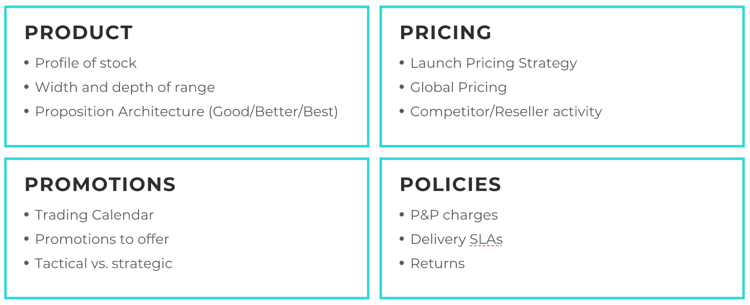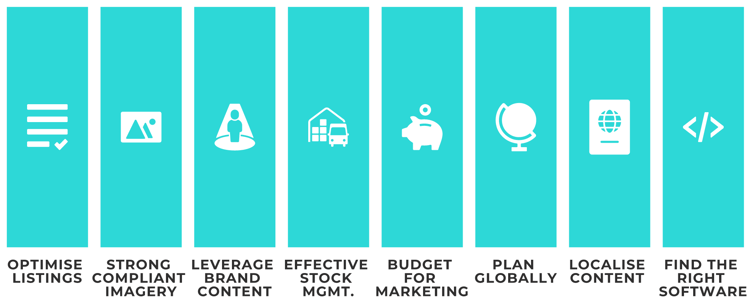As a collective at Rich Insight, we have experienced marketplaces from both the brand and agency perspective and we’ve supported hundreds of businesses who are struggling to make marketplaces work. Supporting brands in making marketplaces a viable option for their businesses has given us a wealth of knowledge which we’d like to share.
Let’s start with some key marketplace lessons we’ve collected through our experience:
-
- Multichannel is good – spreading stock across a few channels can disperse risk and increase your chance of reaching your target consumer
- Amazon is hard to manage – although Amazon often provides the largest opportunity for sales, the increased competition and complex backend management mean it isn’t always the best option
- Seller Central gives more control – if you choose to sell on Amazon, Seller Central gives much more control over price and branding than Vendor Central
- International is increasingly important – if logistically viable, you could be gaining big sales from an international market and there are plenty of logistics models to make international sales more appealing
- Ebay can be big – previously focused on discount and used goods, Ebay now offers a sizeable fashion market and has become a major sales platform for a number of big brands
- Selling stock efficiently is key – multichannel is a great way to make more sales but stock efficiency is vital to ensure you’re maximising sales on each channel and that customer satisfaction remains high
|
These lessons (and a few more years experience) have also left us with what we believe are the ingredients for success on marketplaces. Marketplaces cannot be considered through the eye of a standard sales funnel; due to their operations model and level of direct interaction with the customer, marketplace sales should take the form of a flywheel:
|
|
Success on marketplaces is more than just sales growth, it’s new and happy customers. Success is a sum of all the parts of the flywheel working together to scale the business.
Based on the flywheel and our own experience, we’ve culminated 10 attributes for success on marketplaces:

If you’re ready to go with these attributes, it’s worth deciding your proposition before you start selling. If you know what you’re aiming for, your decisions are more likely to be aligned with your end goal:

If you’re still unsure on the right choice when it comes to management, operations or integration options; or if you can’t decide the right marketplace for your business; take a look at our article on marketplace selection for step-by-step advice.
In the final steps of going live, we believe these are the key steps in planning your proposition for success on marketplaces:

Once you’re live on your first site it may feel like the hard work is done, but we’ve got a few final tips to bare in mind when the sales are coming in and you consider expansion:








Blog Comments